Frederica Freyberg:
I’m Frederica Freyberg. Tonight on “Here & Now,” I sit down with Governor Tony Evers to go over the new state budget. A national Latin-American convention brings top presidential contenders to Milwaukee. And Milwaukee County rolls out a new approach to juvenile justice. It’s “Here & Now” for July 12.
Announcer:
Funding for “Here & Now” is provided, in part, by Friends of Wisconsin Public Television.
Frederica Freyberg:
Capitol wonks spent months worrying over the new two-year state budget with fights back and forth over partisan matters and spending. But just what will the $82 billion spending plan mean for Wisconsin residents? We sat down with Governor Tony Evers this week to hear his take. We started by asking how he thinks the plan will affect people over the next two years.
Tony Evers:
I believe in a positive way or I wouldn’t have signed it. We, lieutenant governor and I, went across the state before we developed the budget and subsequent to submitting it and getting people’s reaction to it. And so, the priorities are around health care, transportation, education, were clearly a top priority. But also a top priority was let’s get something done. And so we — I believe that at the end of the day, this budget does move us in the right direction in all three of those areas. And so I think people of Wisconsin will see a better transportation system, will see education system that’s funded somewhat better and health care, you know, even though the Medicaid expansion didn’t happen, there’s additional resources in that area, too. So I think the people of Wisconsin will be pleased that those three categories that we ran on, frankly, and listened to, we’ve made steps in the right direction. That’s not to say that this budget’s an end-all and be-all. It’s something that I considered vetoing the entire budget, but at the end of the day, we were able to make enough changes to make it happen.
Frederica Freyberg:
Speaking of those changes, how was it in the veto process that you were able to increase funding to schools over the Republican plan?
Tony Evers:
Well, it’s creative budget vetoing. I will say that. But it’s not creative in that it’s never been done before, that particular type of veto. And so we felt it was something that had, you know, been done before by Republican and Democratic governors, so we felt it was the right thing to do. And it allowed us to increase funding for our schools, which a tremendously important piece of our budget.
Frederica Freyberg:
In response to that particular veto, two Republican lawmakers are circulating a proposed constitutional amendment to limit a governor’s veto authority. What’s your reaction to that?
Tony Evers:
Well, I heard about it. I haven’t seen it. So that’s a little bit of disadvantage there. But, you know, the thing that concerns me is that it’s one more let’s deal with — let’s take power away from the administration. We started with the lame duck session and now we’re morphing into this. I just — I think people of Wisconsin are satisfied that this budget process is over and we need to move on. But clearly there’s at least a couple state reps that feel that that’s important to lay down a marker. I don’t believe that’s necessary. We had far fewer budget vetoes than the previous governor. So I think it’s just kind of more of the same that is an outgrowth of the results of the last election.
Frederica Freyberg:
In reducing spending on the administration of FoodShare work requirements for people with children through your vetoes, you effectively killed that requirement. Why did you go ahead and do that?
Tony Evers:
Well, certainly poor people need assistance, and any additional requirements put on them I think is unfair. And I opposed those requirements when they were passed in the legislature in the past. When families and individuals are struggling financially and they need help from — in this case it’s federal money. Most of it’s federal money. I don’t see there’s a real need to punish them further. Just doesn’t make any sense to me. And so we had the opportunity to save some money by doing those vetoes and actually make a statement around what we feel is important and what isn’t important.
Frederica Freyberg:
And the veto did not eliminate the drug testing provision. Would you get rid of that if you could?
Tony Evers:
If I could, sure. I mean, there’s this notion that somehow there’s all this rampant abuse of the system and that just isn’t true. And to tighten up that something isn’t a major issue just costs more money that could be used elsewhere.
Frederica Freyberg:
Going forward, you have said that you are intent on expanding Medicaid. How do you expect to do that with the legislature dead set against it?
Tony Evers:
Well, we have legislative leaders that are dead set against it. I know that there are Republicans that if given the opportunity would support it. I believe that if we take this to the people of Wisconsin and continue to put it out in front of people, you think about it. I’ve said that a million times. 70% of the people in the Marquette Poll support it. We heard it consistently across the state when we did our listening sessions. And it’s financially prudent. Right now we’re spending a couple billion of our tax money helping New Jersey and Illinois expand Medicaid. So I think always it makes sense. Our goal is to make sure that people when they’re running for office next time around, that that’s part of a discussion and get people on the record on this one way or the other. You know, all politics are local, and if local people want this, and clearly they do, we’re going to be encouraging people to take stances on this when they’re running for reelection.
Frederica Freyberg:
Why did you veto the part of the transportation budget that would have spent $2.5 million on a mileage-based fee study?
Tony Evers:
Well, because first of all, that’s a very — first of all, we didn’t get rid of the money. We got rid of the study. So the money is still there. But at the end of the day, we’ve had lots of studies on the issue of the tolling, which is part of it. And, you know, am I against tolling or for tolling? It doesn’t make any difference. We just had a lot of studies on it. So if indeed there needs to be money at some point in time to take a look at the mileage-based piece, we can take a look at that. But to me it was just too restrictive as it was, so we kept the money and got rid of the requirement.
Frederica Freyberg:
Will you persist on the gas tax increase?
Tony Evers:
I think it’s still the most sensible way to do that. But if there’s better alternatives than the one we have right now, which is essentially doubling fees, which we can’t do every four years, we have to come up with a solution sometime between now and the next budget. I believe a gas tax that’s indexed to inflation is the most logical way. But there may be other ways, too. Four years is a long way off. Or two years is a long way off. But I can’t believe that things are going to change that much since then, or in that period of time, so I still think it’s the best alternative.
Frederica Freyberg:
In your veto message, you said you’re going to bring the fight for a nonpartisan redistricting process to the legislature? How will you bring it to the legislature?
Tony Evers:
Well again, it’ll be either through legislation that is proposed and we’ll work hard to make that happen. But at the end of the day we will bring it to the people of Wisconsin. And as I said before, all politics are local. This is one that all across the state people feel very strongly about. It’s not just Dems. We have to make sure that people, that legislators and governors aren’t selecting their voters, that voters select them. And that’s a pretty simple concept and I know we can win on that. It’s just a matter of getting it out there.
Frederica Freyberg:
What do Republican-drawn maps have to do with the state budget?
Tony Evers:
Well, a lot. First of all, we have a legislature that is mostly Republican. And it’s one side or the other, they’re both Republican. One less, one more. A lot of it has to do with the fact that their lines — we’ve been gerrymandered. So in order to make sure that we are not selecting the voters, that the voters are selecting us, we need to have fair maps. And I said this during the campaign and I’ll say it now. This can’t be retribution by Democrats and creating Democratic maps. We just have to have them drawn fairly. I think there’s lots of ways we can do that.
Frederica Freyberg:
Do you expect you might be able to work with the legislature to pass legislation on medical marijuana?
Tony Evers:
Possibly. There seems to be some interest in doing it in the budget. People that were against recreational marijuana felt there was too much tied to the medicinal use of marijuana. So I think it’s possible. But at the minimum, we’re going to have a good conversation around it. In the past in the budget we proposed it and it was yanked out right away, so there was no chance to talk about that. If there’s legislation that’s proposed, and I’m sure there will be, you know, Speaker Vos has indicated interest and others in the Republican side have talked about it, too. So I feel good that we’re actually going to have a conversation around it.
Frederica Freyberg:
Now, members of your cabinet will have spent the week touring the state talking about this budget. What is their message?
Tony Evers:
Their message is we have delivered on our promises to make a great start in areas that we focused on and also talk about — really, it’s important for people of Wisconsin to understand that administration isn’t just Evers and Mandela Barnes. It’s the people that are doing the hard work in the agencies. And so getting them out interacting with people across the state I think is really important. But I think it’s also important for them to talk about what difference this budget is going to make to the people of Wisconsin and in our areas. For example, it seems small on the surface, but in the area of tourism, it’s in the budget. The Republicans agreed to it. We now have a department of — or a Division of Outdoor Recreation, which is really important to the state of Wisconsin. We need to be talking that and how that’s going to be implemented.
Frederica Freyberg:
I spoke with Governor Evers earlier this week.
All eyes are on Milwaukee as the seat of next July’s National Democratic Convention. But ahead of that, this July, a national convention with an eye toward policy and politics also chose Milwaukee. Some 25,000 people gathered late this week to celebrate the 90th anniversary of the League of United Latin American Citizens. Last night, the convention hosted some of the Democrats running in the presidential primary. Here’s a sample of what was discussed at the Milwaukee town hall forum.
Julian Castro:
The question before us is whether we’re going to continue to be that country that expands opportunity to people no matter who they are, what they look like, how much money they have or don’t have, how long they’ve been in our country, what their last name is. Or are we going to go backward and become a nation where opportunity is only afforded to those who look a certain way.
Elizabeth Warren:
I’m also protecting our dreamers, but not just our dreamers. What does it mean to protect a dreamer if her mother is taken away, if her father is taken away, if an older sibling is taken away, if a younger sibling has missed the time cutoff? That’s not who we are.
Beto O’Rourke:
We don’t need to deport people or round them up. In fact, when immigrant communities fear local law enforcement, fear federal law enforcement, they’re less likely to report crimes, to testify in trials, to serve as witnesses. They’re no longer participating in the civic life of our communities and we are less safe.
Frederica Freyberg:
Democrats running in the primary for president appeared in a Milwaukee town hall forum last night. The forum was sponsored by Univision and the League of United Latin American Citizens. The league is the oldest Hispanic civil rights organization in the country and is in the midst of its national convention in Milwaukee. So what did members of the league think of the candidates and the race for president more generally? We asked its former president, Hector Flores, who joins us now from Milwaukee and thanks very much for being here.
Hector Flores:
It’s an honor and a pleasure to be with you today.
Frederica Freyberg:
What do your members want to hear from any candidate who will receive an endorsement from your organization?
Hector Flores:
Well, because we’re a nonprofit, normally we don’t endorse candidates, but most certainly any of our membership can endorse candidates and absolutely the kind of work that we do in order not to, I guess, jeopardize our nonprofit status is we do voter education drives. We do voter registration and do get out the vote. But we do go listen to candidates and that’s why last night we had four of the viable candidates before, I guess, a capacity crowd at the convention center. And let me tell you, it was really interesting and very intense last night to listen to four great candidates, beginning with Julian Castro from San Antonio, the former mayor and secretary of HUD. And then of course we also had Bernie Sanders and a lot of young people whooping and hollering. It was just incredible. And then when Elizabeth Warren came onboard, they just kept on. The excitement, you know, the political excitement and atmosphere. And then the clean-up hitter was Beto O’Rourke, who’s from Texas just like Julian. It was dynamite to listen to all of these candidates expound on what they would do as soon as they got into office. And of course, our membership were excited they took the time and liberty to come and speak to us.
Frederica Freyberg:
Why did you bring your national convention to Milwaukee?
Hector Flores:
Normally it takes about four years to bid for the convention. And when I was the national president in 2006, I actually was instrumental in bringing it to Milwaukee because I wanted our base to expand in the Midwest. But also not only here in Wisconsin, but also in Illinois and Chicago in particular, because there’s two million Latinos of Mexican origin in the Chicago area. So I thought that we should bring it to where our potential membership is, but also to prepare them to get into elective office at all levels, from the school boards to the city councils to state representation to Congress and on and on and on. And in the time that I’ve lived, I’ve seen those changes occur because of the great work that not only LULAC has done, but a lot of our sister civil rights organizations.
Frederica Freyberg:
Did you invite all of the candidates, including President Trump?
Hector Flores:
Absolutely. President Trump was invited to attend our event but he chose to come and only speak to the well-heeled wealthy of this community tonight. But everybody got an invite. In fact, we just got a call today from sitting mayor de Blasio from New York that he wants to come tonight whether he can speak or not. SO we said get on that plane and come on down here. We want to listen to you too. But of course, yes, we have quite a few of the other candidates. There are like 22 or 23 right now. They’re all welcome to come and speak to our membership. As I mentioned earlier, as a nonprofit we cannot endorse but we sure can highlight some of these people.
Frederica Freyberg:
How does what many describe as a crisis at the U.S. border with Mexico shape how Latino voters, your members, feel going into the 2020 election?
Hector Flores:
Most Latinos are aghast at what our country has become because of the public policies of Donald Trump. I could never imagine in my life growing up in a border town that we would put in jail, in concentration camps. I know we call them detention centers but they’re as close to a concentration camp as we can get. When you take kids from their parents, even babies, and put them in these detention centers, is this what America has become? You know, we are the vanguards of liberties and freedoms and constitutional rights. To do that by the policy of this administration is totally unacceptable. We’re the epicenter of wrong here. We don’t know what has happened to our ship. We got to bring it back to those values, those American values. We’re very upset, to say the least.
Frederica Freyberg:
And yet there are certainly Hispanics who voted for Donald Trump and support stronger border enforcement. How does his rhetoric on immigrants go over with people who might have voted for Donald Trump?
Hector Flores:
They’re not listening to his — they’re only listening to his rhetoric and not seeing what his presidency has done to people in need, those refugees that are coming here, fleeing violence and economic hardships in their home countries, in Mexico and others in Central and South America. But many others, even from Africa now they’re coming in to Mexico and other countries and going through those borders. It’s not just Mexicans and Central Americans that are coming to our borders seeking asylum. Where have you heard of people not being given the right to asylum? We have that as part of our contract with other nations that we will open. And so they’ve slowed the process of those seeking asylum by some of the problems I just mentioned.
Frederica Freyberg:
Very quickly, how on important are Hispanics to the vote for president in 2020 nationally and here in Wisconsin?
Hector Flores:
Well, let me just say that the road to the presidency of the United States of America goes through our barrios, our cities, our counties and our states where we predominate. We predominate in about six major cities. Many of those are going to be some cities that if people go out and vote, I understand and I’ve seen some of the research, that the only reason that Donald Trump won was because people did not vote. If people had gotten off their duff and gone and voted, he wouldn’t have won. We have a problem with the Electoral College, winner-take-all because we know that — probably Hillary had three million more popular votes. We have engaged in a lawsuit trying to change that system. We’re suing four major cities on how they determine how the voting is split once the elections are taken.
Frederica Freyberg:
Mr. Flores, I want to get you on this, lastly. What is your comment on nationwide ICE raids scheduled by the Trump Administration for this weekend?
Hector Flores:
I don’t think terrorizing people is the way to do it. Just like anything else, we don’t accept criminals or people committing crimes in our country. We think law enforcement should come in and root those that come here to do harm to anybody or violate our laws. But we don’t think crossing that border should be a criminal act. That’s a civil act. You receive fines and what-have-you. We hope that in the near future, we will sponsor through our friends in Congress and the Senate, legislation to make it strictly a civil offense, like getting a ticket and going and paying your fine and then working with those. We think that immigrants coming to our country, like in the past, should have every right to citizenship, a way to citizenship, but they must comply with different things so they can earn. We believe in earned citizenship.
Frederica Freyberg:
All right. We need to live it there. Hector Flores, thank you very much.
Hector Flores:
It’s my pleasure to be with you.
Frederica Freyberg:
President Trump also visited Milwaukee Friday. He came to Wisconsin to discuss the United States-Mexico-Canada agreement and hold a fund-raiser. It’s the president’s sixth visit to Wisconsin since taking office.
We stay in Milwaukee and turn to a new county effort to rethink juvenile justice. This month, the Milwaukee County Executive proposed a nearly $42 million makeover of his county’s juvenile detention center to house youth offenders who are currently housed at the state juvenile prisons. But the proposal goes beyond bricks and mortar to include care and programming aimed at reducing recidivism and returning rehabilitated youth to their communities with skills they need to succeed. The proposal is designed to build on what the county says is its approach to the youth justice system that promotes racial and economic equity. Milwaukee County Supervisor Marcelia Nicholson is among board members who this spring, signed a resolution declaring racism a public health crisis. She weighs in on the new juvenile justice plan with us tonight. Thank you for being here.
Marcelia Nicholson:
Thank you for having me, Frederica.
Frederica Freyberg:
So what do you think of Milwaukee County executive’s submission for this nearly $42 million residential care center for youth offenders?
Marcelia Nicholson:
Well, Frederica, I wholeheartedly support this measure. A single institution is a one-size-fits-all model that does not work for the children of Milwaukee County. I think it’s important that we partner with the state and agree to operate local facilities while they give us the freedom to implement local solutions. We have already beat the state at reforming criminal justice practices for youth. And since 2011, we’ve looked beyond detention and instead looked to develop a continuum of services for youth and family so they no longer meet the system. They can, in fact, leave the system and reengage with their peers.
Frederica Freyberg:
So that said, juvenile inmates would be transferred to the Milwaukee County facility from Lincoln Hills and Copper Lake Detention Centers and the new location, again, would focus on treatment on reengagement. How would this be different from current practice at the youth prisons?
Marcelia Nicholson:
Absolutely. So we no longer want to handcuff our children to a system that doesn’t work for them. Instead, we want to use evidence-based solutions to help our youth. That means providing greenspaces so that they can reconnect with nature. It means providing a larger staff-to-child ratio so none of our children fall through the cracks. It means implementing education, treatment and programming to get at the root of why our children first met the system and what they need to make sure that they don’t reoffend.
Frederica Freyberg:
What has been the reaction in Milwaukee to this proposal on the part of the county?
Marcelia Nicholson:
Well, to our proposal around youth justice facilities, this is been a lot of support. We are already operating many youth justice facilities and we’re utilizing this modern approach. So rather than build a new facility, we are renovating, upgrading what we’re already doing and building upon the successes that we already have.
Frederica Freyberg:
How does this proposal dovetail with the Milwaukee County board’s resolution declaring racism a public health crisis?
Marcelia Nicholson:
Frederica if I could have a moment to answer your question, I need to first explain what institutional racism is. Many people see it as a few bad actors. Bad apples, we like to call them. But we need to look at institutional racism as a rotting apple tree whose roots are permeating the system. Systems like our courts, our schools, the police department. As an example, a black person and a white person can commit the same crime. Let’s use drug abuse as an example. The black person is already more likely to be arrested because the police are already in their communities at a disproportionate rate. If they are both arrested, the black individual may be more likely to sit in jail because he can’t meet cash bail. Or the white individual may be directed to drug court, where he’ll receive treatment instead of incarceration. And if they’re both sentenced to jail, data shows that that black individual will receive a 20% harsher sentence, already creating biases at every corner. So from the moment of arrest to the time spent in jail and the ability to get out and reenter society, people of color are already at a disadvantage. And that’s institutional racism. That’s the system we’re trying to reform and provide for our children so that they can do better.
Frederica Freyberg:
Now, the new approach in Milwaukee would expand programming that according to County Executive Chris Abele “validates and values each youth’s culture, race and ethnicity.” How important is that in the juvenile justice system in your mind?
Marcelia Nicholson:
Milwaukee County doesn’t aim to provide basic services. We aim to provide extraordinary services that meet the people where they are. Services that create an environment for everyone to thrive and to be successful at life, regardless of race, regardless of zip code. And by affirming our values to address racism, affirming our values to say we care about our children. That alone is the first step in making sure that they know they are well-loved and that they’ll have the tools they need to be successful adults.
Frederica Freyberg:
Great. Supervisor Nicholson, thank you very much for joining us.
Marcelia Nicholson:
Thank you.
Frederica Freyberg:
Now for some environmental news. An advisory group of hunters is pushing for a mandatory CWD test for parts of western Wisconsin. The group was formed after a CWD positive deer was found last year in Eau Claire County. They advised the DNR on options for CWD surveillance and management. The recommendation includes six townships in Eau Claire, Dunn and Pepin counties.
And that is our program for tonight. I’m Frederica Freyberg. Have a great weekend.
Announcer:
Funding for “Here & Now” is provided, in part, by Friends of Wisconsin Public Television.
Search Episodes
Related Stories from PBS Wisconsin's Blog

Donate to sign up. Activate and sign in to Passport. It's that easy to help PBS Wisconsin serve your community through media that educates, inspires, and entertains.
Make your membership gift today
Only for new users: Activate Passport using your code or email address
Already a member?
Look up my account
Need some help? Go to FAQ or visit PBS Passport Help
Need help accessing PBS Wisconsin anywhere?

Online Access | Platform & Device Access | Cable or Satellite Access | Over-The-Air Access
Visit Access Guide
Need help accessing PBS Wisconsin anywhere?

Visit Our
Live TV Access Guide
Online AccessPlatform & Device Access
Cable or Satellite Access
Over-The-Air Access
Visit Access Guide
 Passport
Passport





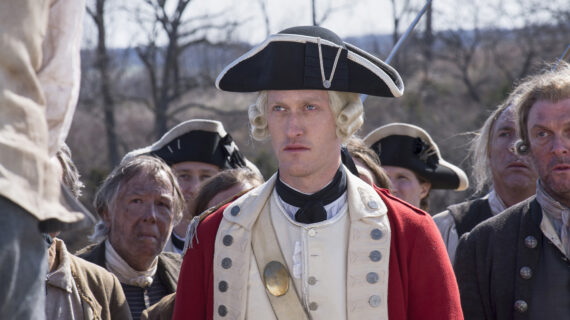
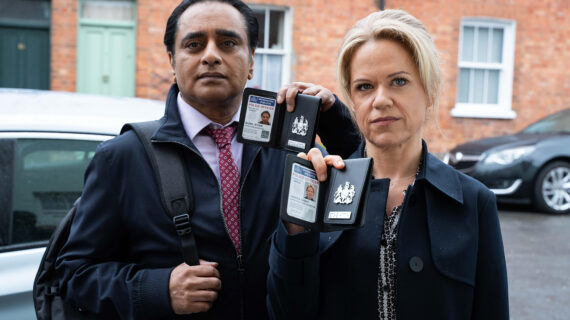
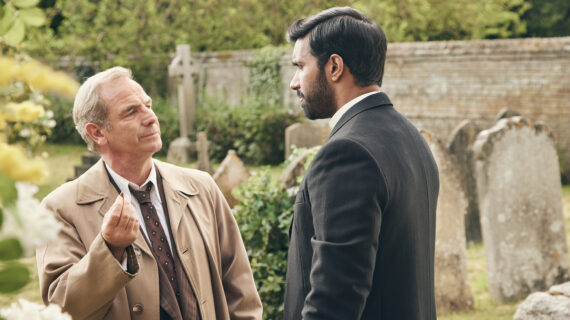


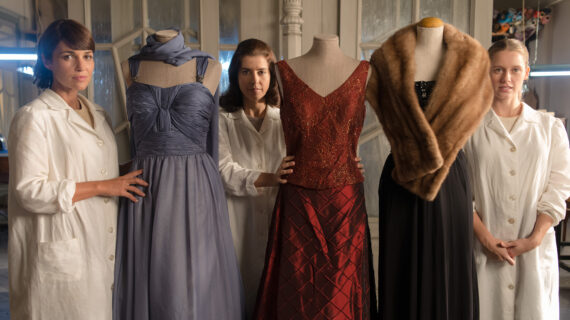


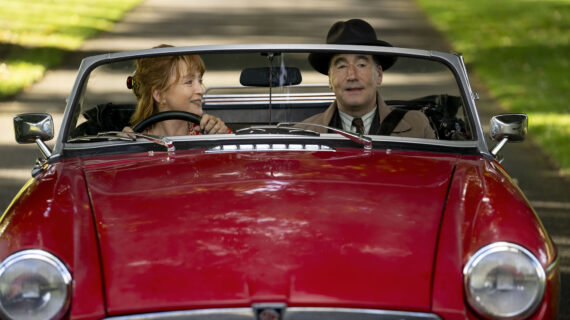
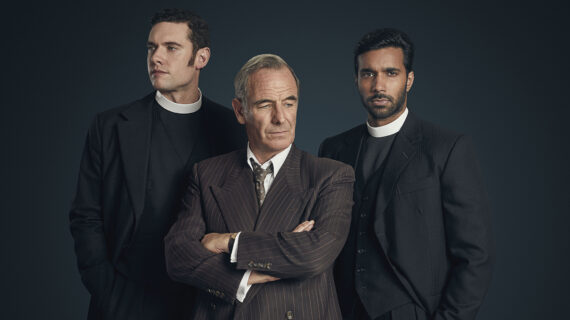
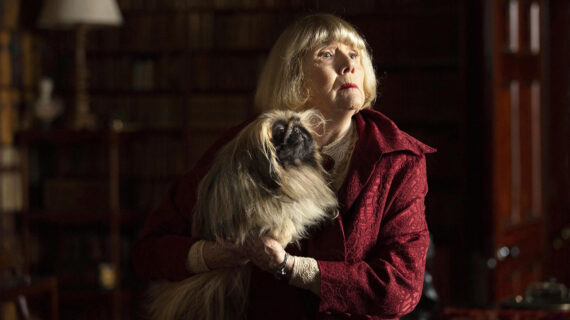

Follow Us